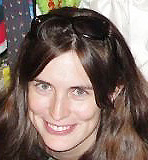 Excited to attend a two-week course on Strengthening Human Resources for Health at the Harvard School of Public Health, I checked into my hotel in Boston on a Sunday evening. At the front desk, I received my room key and the largest binder I’ve ever seen. I settled into my room and opened the binder expecting to find some overview materials and Boston tourism brochures. Instead it was full of course outlines and required articles.
Excited to attend a two-week course on Strengthening Human Resources for Health at the Harvard School of Public Health, I checked into my hotel in Boston on a Sunday evening. At the front desk, I received my room key and the largest binder I’ve ever seen. I settled into my room and opened the binder expecting to find some overview materials and Boston tourism brochures. Instead it was full of course outlines and required articles.
Information overload
My technical expertise is in library and information science within the context of global health, so it’s hard to intimidate me with information overload. But as I began the required readings for the first day of class, pessimism dominated my thoughts due to the reinforcement of something I already knew—addressing human resources for health (HRH) challenges can seem overwhelming.
With so many topics to cover in just two weeks, could this course really make a difference? My mind raced as I read about many different frameworks for examining health system components. Who could possibly have expertise in all these areas (i.e., finance, labor markets, policy, management, leadership) as well as public health? Read more »
